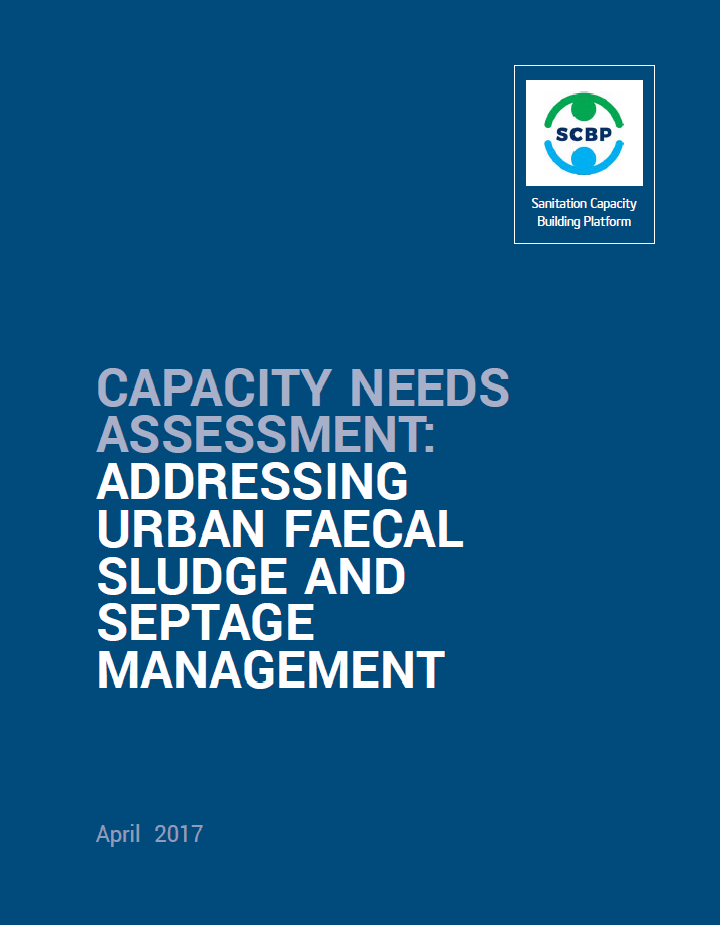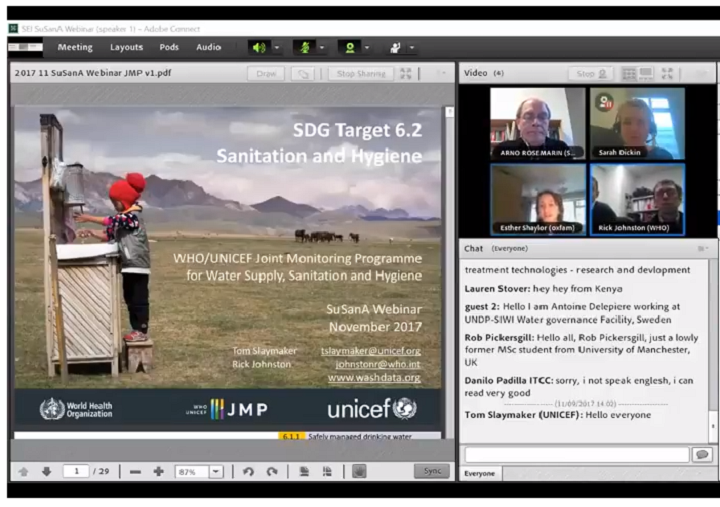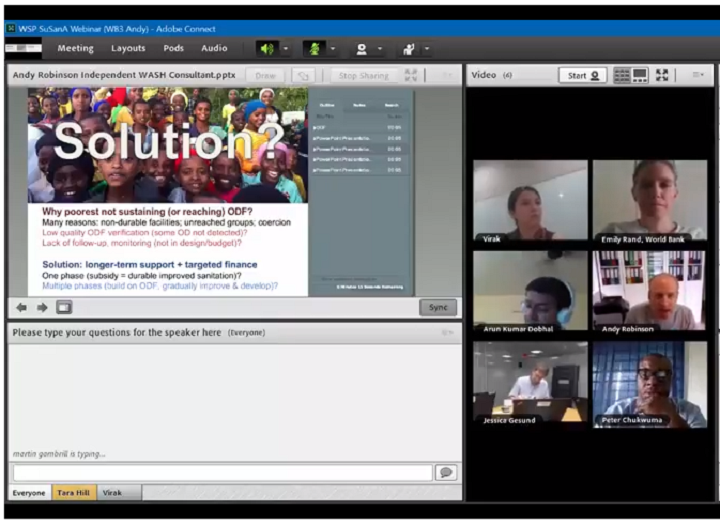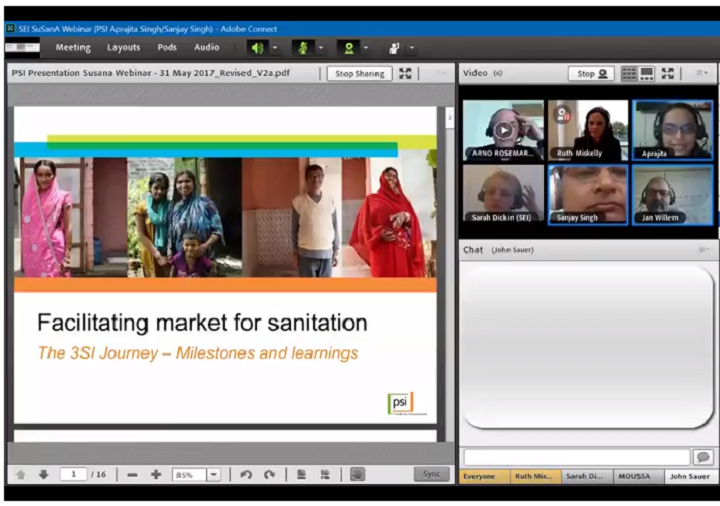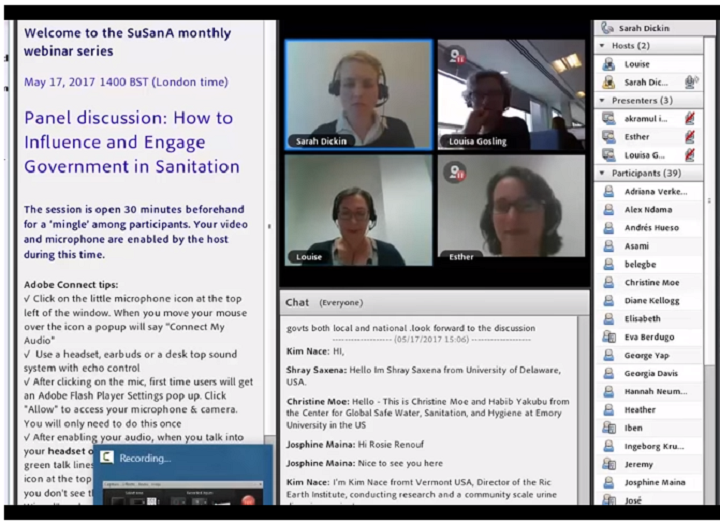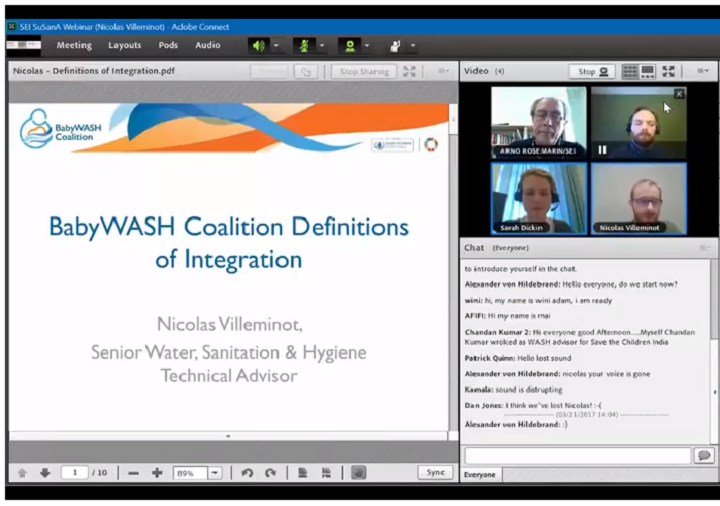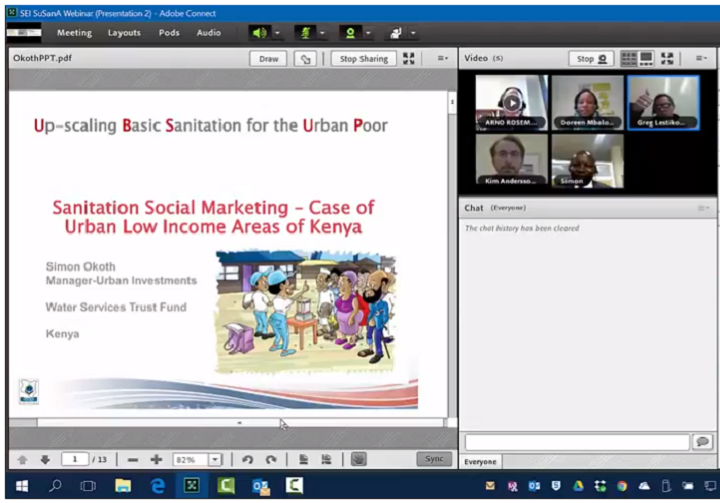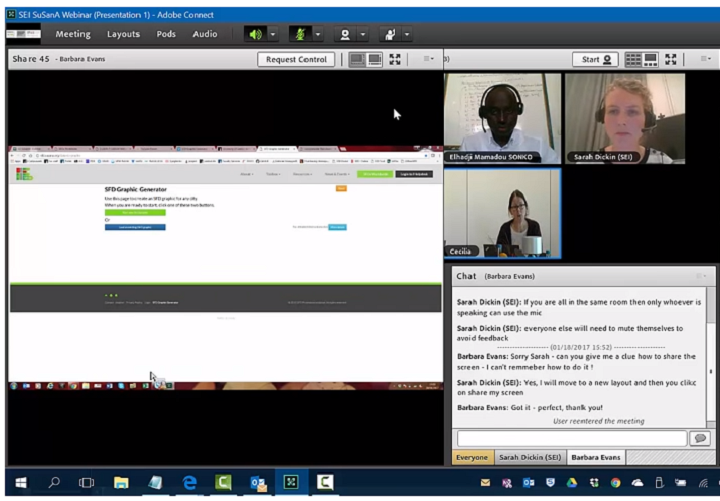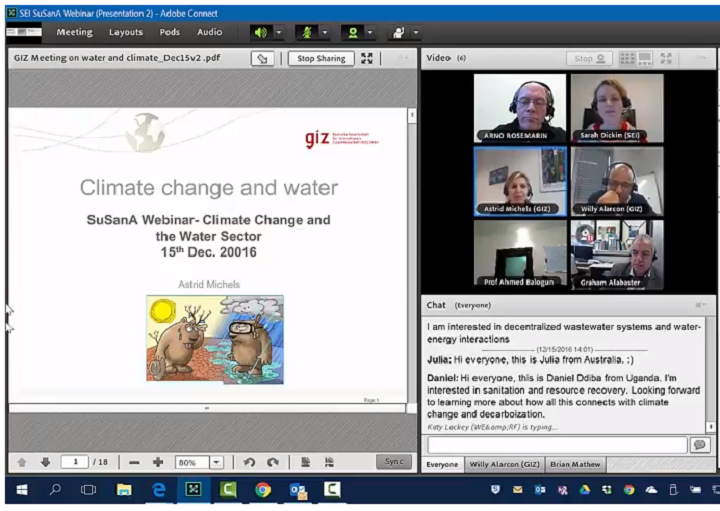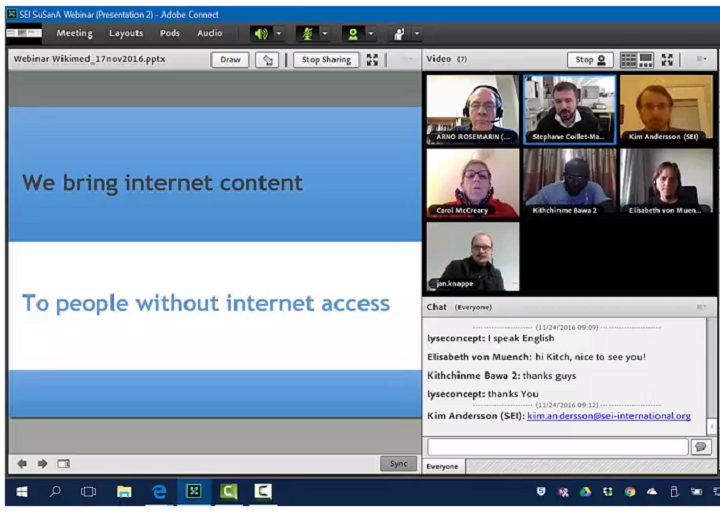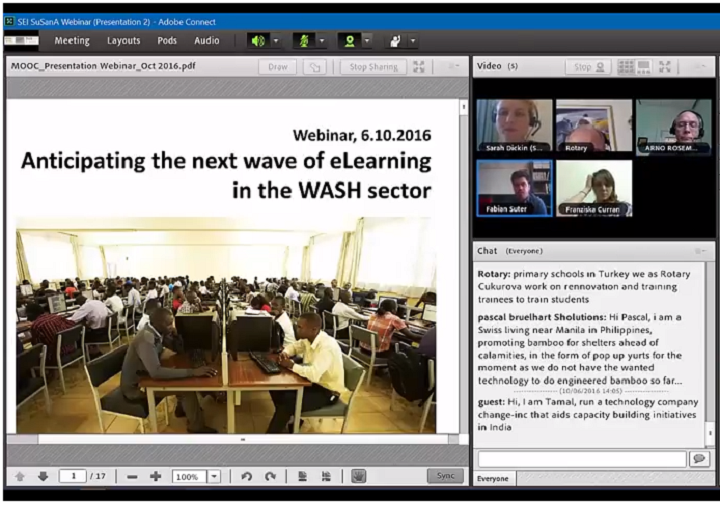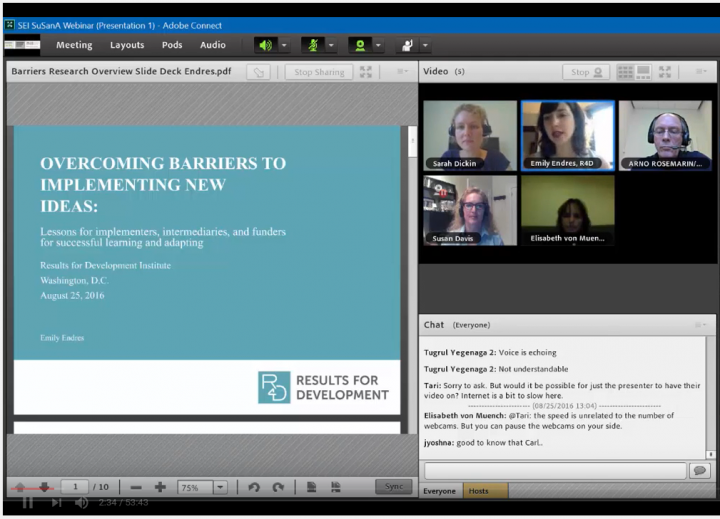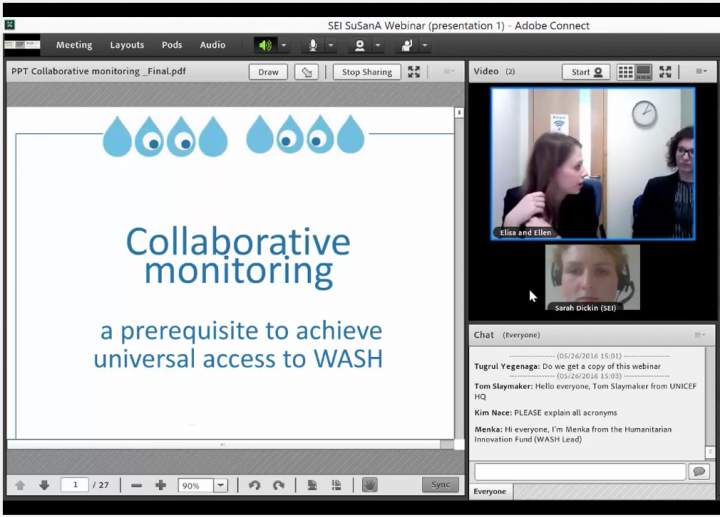Searching for information on Sanitation Workers?
The Sanitation Workers Knowledge + Learning Hub is the best source for all current news, trends, articles and updates on sanitation workers rights around the world.
Recognising city-level capacity limitations for decentralised sanitation planning and implementation in India, the Ministry of Urban Development (MoUD) appointed the National Institute of Urban Affairs (NIUA) as the anchor organisation for a Sanitation Capacity Building Platform (SCBP) to support cities in their sanitation planning and implementation. NIUA partnered with CAWST,2 a capacity …
Pit latrine linings for emergency sanitation facilities require different performance criteria from those for pits used in longer-term development work. Various international initiatives are currently under way to develop new methods of supporting the pits used for latrines in emergencies, but before a solution can be found, the problem needs to be defined. Current field guidance lacks the level …
Perceptions of what constitutes an ‘emergency’ vary between personnel and between organisations. Generally, an emergency may be considered to be the result of a man-made and/or natural disaster, whereby there is a serious, often sudden, threat to the health of the affected community which has great difficulty in coping without external assistance.
This book has been written to help all …
The Risks, Attitudes, Norms, Abilities, and Self-regulation (RANAS) approach to systematic behavior change is an established method for designing and evaluating behavior change strategies that target and change the factors influencing a specific behavior in a specific population. In brief, it is an easily applied method for measuring behavioral factors, assessing their influence on behavior, …
Communities affected by a disaster often lack basic water and sanitation facilities. They are likely to be traumatized and vulnerable to disease. Disruption of familiar practices or the relocation to new environments can result in a deterioration in existing hygiene behaviours. This, in turn, will contribute to an increased risk of disease transmission and epidemics. This technical note explains …
Access to water, sanitation and hygiene promotion is one of the key aspects to securing the health status of populations affected by emergencies and humanitarian crises. The impact of hygiene promotion and washing of hands with soap has wider health implications, as hands are vectors that can transport disease agents from humans to humans, directly or indirectly. Furthermore, the ability to wash …
Research and development undertaken by the World Bank during 1976-1986 has shown clearly that possession, proper use and maintenance of a sanitation facility are more important, in terms of improving health, than the actual sanitation technology employed, provided that it is affordable and socioculturally acceptable. Nevertheless, sanitation technology, sanitation technology choices have to be …
Responsible, effective wastewater management is needed to address global water crises. This requires careful balance of the often-competing interests of stakeholders, as what poses a risk to the environment and public health may be a valuable resource to farmers and industry. How do we manage these different interests from a policy and practical perspective?
At World Water Week 2017, Stockholm …
The second SuSanA India Chapter meeting was held in Panaji, Goa, India on 21 February 2018 - just after the 50th Annual Convention of the Indian Water Works Association (IWWA). The seminar encouraged discussions on urban sanitation challenges, holistic approaches to sanitation as well as financing and monitoring sanitation to accelerate progress on SDGs.
Please find the presentations of the …
The traditional solution to providing sanitation facilities in urban areas has been conventional sewerage, but this technology is so expensive that it is not generally affordable by low-income communities. World Bank research has shown that full health benefits can be obtained through the use of a variety of lower-cost alternative sanitation technologies. Although the user convenience level of …
The design of a simple latrine slab is a basic structural problem for an engineer. However, as the slab forms a critical part of a sanitary facility for most people living in low-income countries, the design criteria also need to include issues relating to user preference, culture, gender, health, economics, maintenance and sustainability, as well as those related to construction where size, …
In 2015, Container-Based Sanitation provider Sanergy was awarded a GSMA Mobile for Development (M4D) Utilities grant with SweetSense to install GSM and RFID enabled infrared sensors to record Fresh Life Toilet activity and estimate fill levels. Waste collectors and Fresh-Life Toilet Operators used the sensors to record servicing events and request assistance by swiping RFID tags. A mobile app was …

